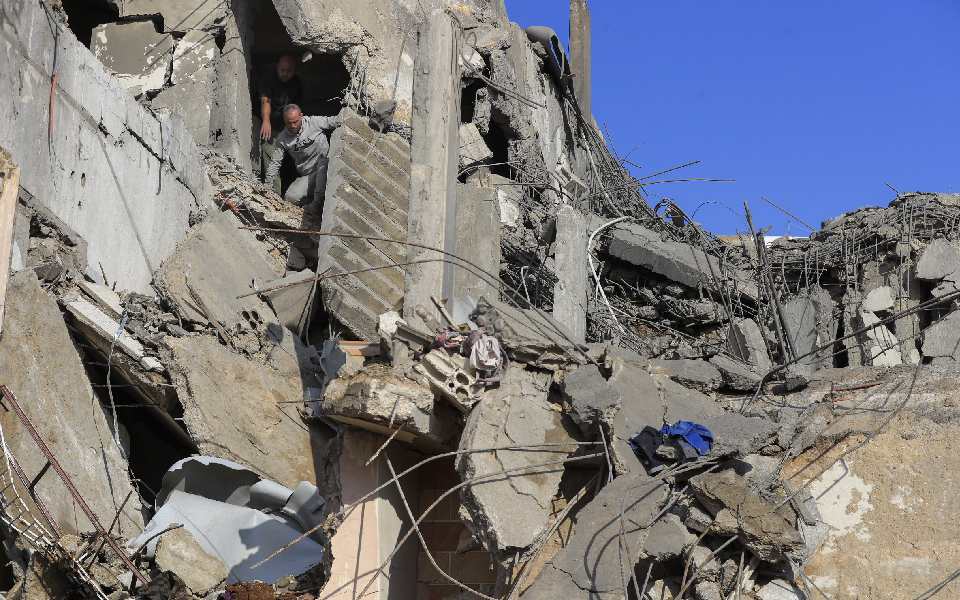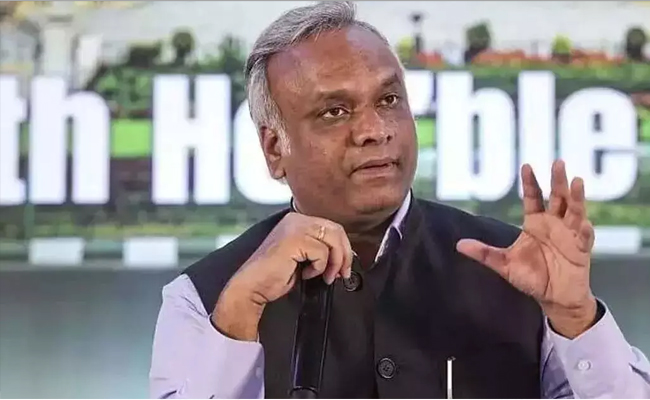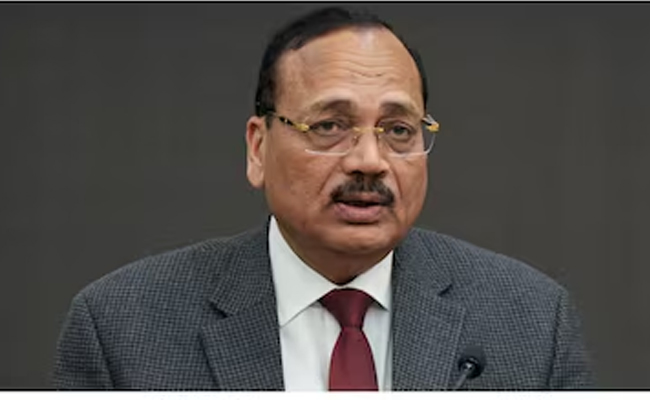Deir Al-Balah (Gaza Strip), Apr 9 (AP): Israeli aircraft struck a residential block in war-ravaged northern Gaza on Wednesday, killing at least 23 people, health officials said, as the renewed fighting in the devastated Palestinian enclave showed no signs of letting up.
The Al-Ahly hospital said at least 23 people were killed in the strike, including eight women and eight children, figures confirmed by the territory's Health Ministry.
The strike hit a four-story building in the Shijaiyah neighborhood of Gaza City and rescue teams were searching for victims under the rubble, according to the Health Ministry's emergency service. The civil defense, a rescue group which operates under the Hamas-run government, said other neighbouring buildings were damaged in the strike.
The Israeli military said it struck a senior Hamas member who it said was behind attacks emanating from Shijaiyah. It did not name him or provide further details. Israel blames the deaths of civilians on the Hamas group, because it embeds itself in dense urban areas.
As it ratchets up pressure on Hamas to agree to free hostages, Israel has issued sweeping evacuation orders in parts of Gaza, including for Shijaiyah. It has imposed a blockade on food, fuel and humanitarian aid that has left civilians facing acute shortages as supplies dwindle. It has pledged to seize large parts of the Palestinian territory and establish a new security corridor through it.
Earlier this week, Hamas fired its strongest volley of rockets since the ceasefire collapsed, lobbing 10 projectiles toward southern Israel.
Israel resumed its war against Hamas in Gaza last month after an eight-week ceasefire collapsed. The ceasefire brought a much-needed reprieve from the fighting to war-weary Palestinians in Gaza and sent an infusion of humanitarian aid to the territory. It also led to the release of 25 living Israeli hostages held in Gaza and the return of the remains of eight others, in exchange for hundreds of Palestinian prisoners.
Mediators have since attempted to bring the sides to a bridging agreement that would again pause the war, free hostages and open the door for talks on the war's end, something Israeli Prime Minister Benjamin Netanyahu says he won't agree to until Hamas is defeated. Hamas wants the war to end before it frees the remaining 59 hostages it holds, 24 of whom are believed to be alive.
The war, which was sparked by Hamas on Octover 7, 2023, attacks on southern Israel, has seen the deadliest fighting between Israelis and Palestinians in their history.
It has ignited a humanitarian crisis in already impoverished Gaza, and has sent shockwaves across the region and beyond.
Netanyahu travelled to Washington this week to meet with President Donald Trump and in their public statements offered sympathy for the plight of the hostages but shed little light on any emerging deal to suspend the fighting.
Trump has said he wants the war to end. But his postwar vision for Gaza — taking it over and relocating its population — has stunned Middle East allies, who say any talk of transferring the Palestinian population, by force or voluntarily, is a nonstarter. Israel has embraced the idea.
Netanyahu meanwhile is under pressure from his far-right political allies to continue the war until Hamas is crushed, an aim Israel has yet to achieve 18 months into the conflict.
The war has killed more than 50,000 Palestinians in Gaza, according to the health ministry there, which does not differentiate between combatants and civilians in its count but says more than half of the dead are women and children.
Hamas killed 1,200 people during its October 7 attack, mostly civilians, and took 250 people captive, many of whom have been freed in ceasefire deals.
Let the Truth be known. If you read VB and like VB, please be a VB Supporter and Help us deliver the Truth to one and all.
Bengaluru: Rural Development and Panchayat Raj Minister Priyank Kharge has alleged involvement of the Rashtriya Swayamsevak Sangh (RSS) in a money transfer network at global level.
Posting his allegation on his personal ‘X’ account on Saturday morning, Kharge said that he was referring to an issue that had not been dealt with decisively by Indian media houses.
“Here is a crucial story that the Indian media will never touch,” the minister has said, and clarified, “This so-called “body of individuals” has built a global network of over 2,500 affiliated organisations. Through these fronts, the RSS collects “guru dakshina” to fuel its divisive agenda. (sic)”
Kharge has further alleged, “The world’s largest NGO is running amok, laundering money and evading accountability.”
The minister added, “Here is a map of their organisational architecture of their “Vichar Parivaar.” https://rssproject.caravanmagazine.in / @thecaravanindia”





